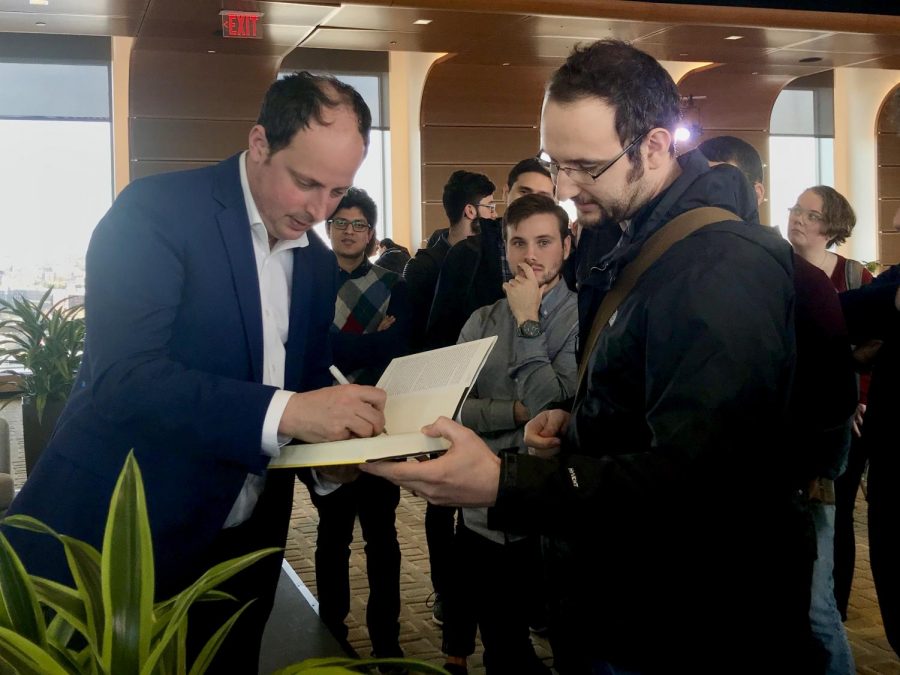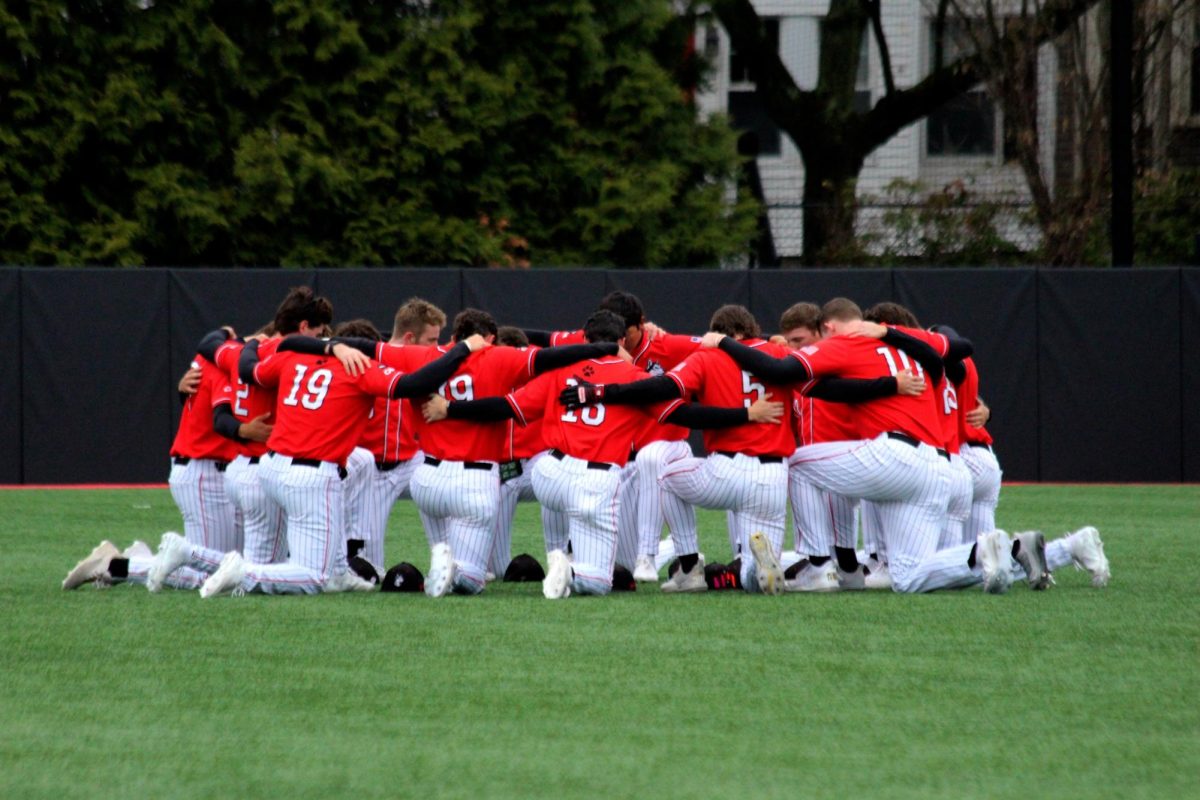Nate Silver gives insight into the 2020 election at NU talk
Nate Silver signs a copy of his book after the talk March 27.
April 3, 2019
Nate Silver, a statistician and the founder of the data journalism website FiveThirtyEight, came to Northeastern March 27 to talk about his work with data and politics. The talk was part of Northeastern’s new political speaker series, “The Civic Experience.”
He rehashed the projections of the 2016 election and said he’s sticking to his model moving forward to 2020.
After starting his career by predicting major league baseball outcomes, Silver began using data to analyze political outcomes. His website focuses on “rigorous journalism” based on both policy and statistics.
“You learn a lot about not just who is going to win or lose but also about the way the system works,” Silver said during the talk.
During the 2008 presidential race, Silver’s model for predicting elections accurately predicted the outcomes in 49 states. For the presidential election in 2012, he correctly predicted the winner for all 50 states, drawing national attention to his work.
However, in 2016, he calculated that Hillary Clinton was most likely to win the presidency, as did most polls. What made Silver’s forecast different is that he only gave Clinton a 64 percent chance of winning, while many other polls said she had at least an 85 percent chance.
After the 2016 election, many viewed Silver’s prediction as a failure and responded with criticism. However, he said he will not change his model in response. He pointed out the accuracy of his model compared to others, something he views as a victory.
“One thing that our model showed, actually, was that if you had a very close popular vote, Trump was more likely to benefit from the electoral college,” Silver said.
Silver said both the media and political candidates need to learn from their mistakes in 2016. He called out the lack of diversity in newsrooms, which are mostly run by and appeal to college-educated Americans in urban areas. He said these media outlets pushed a narrative that Donald Trump could never win an election, reading too heavily into poll data to support their claims.
“All that Trump needed to win was for him to overperform with one demographic group, which was so-called white working class voters in the Midwest,” Silver said.
With the 2020 election over a year away, Silver said it is too early to focus on polls, and voters should focus on policy instead. Since there is a large pool of Democratic candidates, he referred to a variety of other factors that could be better indicators than polls of a candidate’s potential, such as fundraising, endorsements and diverse coalitions of supporters.
“If [they] can beat 20 other Democrats and be good in these debates and turn out voters in the primaries, that’s probably the best test you can have,” Silver said.
Silver’s election expertise attracted a wide variety of NU students and faculty to his talk. Orla Levens, a first-year combined political science and communication studies major, was curious about the correlation between statistics and politics.
“I was brought here because I’m interested in data, and I’ve admired Nate Silver’s work,” Levens said.
Political science professor Costas Panagopoulos, who hosted the talk, was impressed with Silver’s work.
“He’s not only one of the country’s foremost election prognosticators, an election oracle of sorts, but I think he’s demystified elections for millions of Americans,” Panagopoulos said.
Students had a chance to ask Silver questions after the talk, and Elliot Richardson, a fourth-year political science major, asked Silver about the importance of the Iowa caucuses and the New Hampshire primary and how voter diversity plays into them. Silver said America’s changing demographics might affect what primary voters are looking for in a candidate.
Richardson, who frequently listens to FiveThirtyEight’s political podcasts, was pleased with Silver’s input.
“It was cool to kind of get immediate feedback on the question from someone who’s an expert in it,” said Richardson.
Silver said that with today’s polarized political climate, he understands the importance of helping the public comprehend public policy.
“I think politics kind of is infused into the lived experience of billions of people around the world,” Silver said. “We shouldn’t be surprised about politics as a form of entertainment [and] as a form of social discourse.”







